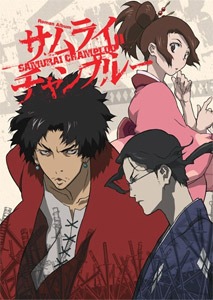
It all begins in a typical teahouse on a typical day. The waitress, Fuu, is dodging the advances of various thugs. Her clumsiness lands her into trouble this time, however. Another thug, Mugen, enters the brawl that ensues in return for food. In the middle of the fight, Jin, a ronin samurai, enters the teahouse only to be drawn into a fight with Mugen. A fiire breaks out and the two faint from the smoke. Shortly later, they awake to discover they are about to be executed for the death of the magistrate’s son in the fire. Fuu helps them escape and demands they travel with her to find “the samurai who smells of sunflowers.” They finally agree with Fuu’s one condition: they are not to kill each other until the journey is finished.
Throughout Samurai Champloo hip hop and street elements are present. Rappers show up, and “gangsta” bandits even appear strangely natural with how the surrounding characters consider it normal. Other than the general framework of the journey and multipart episodes, the series has the same general mishmash feel that Cowboy Bebop’s episodes exhibited. Most episodes stand on their own and can almost be watched in almost any order. Several episodes are off tangent like Cosmic Collisions and Baseball Blues.
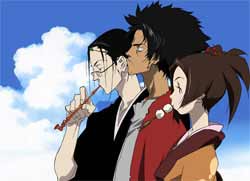
Mugen is a rascal from the Ryukyu Islands. His fighting style is erratic, and he cares little about his own safety. As a lone wolf, he is rough and uncaring toward all but a select few.
Jin is a man from another time. Trained in the traditional kenjutsu style, he is stoic but kindhearted. Like Mugen, he cannot avoid his past.
Fuu is a feisty 15 year old who coerces Jin and Mugen to help her find a man she calls “the samurai who smells of sunflowers.” Her mother’s death from an illness a year before haunts her dreams. She is accompanied by her pet flying squirrel named Momo. Both she and Momo have the uncanny ability to be kidnapped.
Samurai Champloo’s main theme centers around friendship and how every journey must end. Also, one of the driving factors of the characters is hunger during their travels. The gulf between the poor and the rich is vivid throughout the story as the rich use their wealth and muscle to get what they want. The three often throw wrench into the natural order of things as they seek money for their food and lodgings. There is a feel of easy come, easy go. Everything must end so just bid it goodbye when the time comes.
The show is a pleasing mix of modern and Edo. Crisply animated, the fighting scenes explode with fast violence and end with a flourish. They nicely capture the ferocity of sword combat and the speed of death. The backgrounds have a wonderful watercolor look that contrasts the more modern styled characters. The dialogue is well done and entertaining. “No one’s going to relax their ass with you around. ” Mugen tells a homosexual foreigner.
If you are a fan of Cowboy Bebop, don’t miss this one.

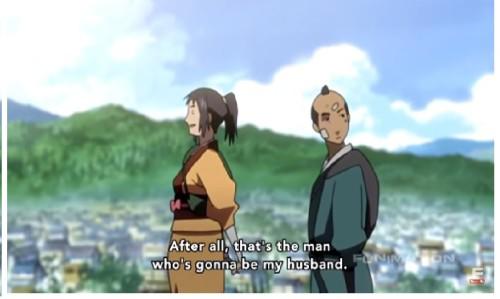
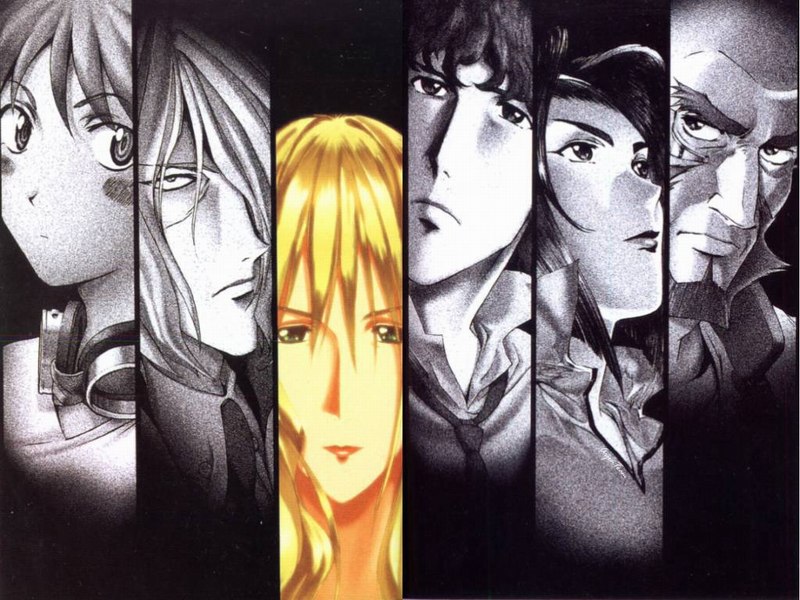
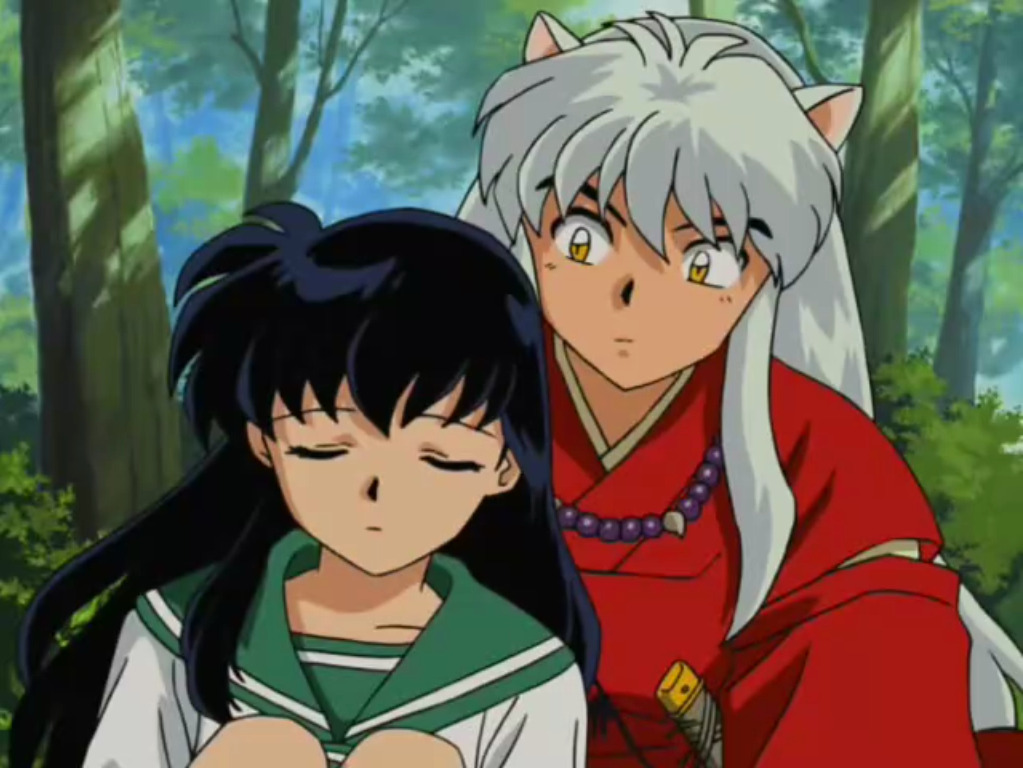
I think the end of Samurai Champloo, if it could somehow be vieewd by people one hundred years ago, would actually be less strikingly sad than it appears to us as modern viewers. I think you get at this somewhat when you talk about the tenuousness of relationships and the fact that we meet many people but only truly bond with a few; however, I think that Samurai Champloo vieewd during the digital age presents us with a disturbing conclusion in part because we have become accustomed to not having conclusions in our relationships. In fact, if anything, relationships ending actually requires an effort on our part give the high-connectivity we’ve become used to that kid you sat next to in 2nd grade? You’re Facebook friends! Your best friend from high school? You email each other every week! That co-worker you passed the summer with at that crappy grocery store job? Well, you still read their blog from time to time. In Samurai Champloo, though, it is very obvious that the parting of the characters is the end of their relationships. They don’t have cell phones or computers hell, even regular old mail isn’t really established at all yet. So to us, to see three people who have formed strong bonds with each other leave each other forever is extremely haunting.
I agree that endings are rare and hard to deal with for us. We do lack closure in our relationships. Every meeting has to have a parting; even though we deny this. Samurai Champloo’s ending forces us to face that reality. The fact Jin, Mugen, and Fuu take it as just a matter of course bothers us even more than their parting. They don’t bother to fight the inevitable; they simply accept it. Perhaps their roads cross again. Champloo, at least, leaves us that small comfort to help us deny the reality of meetings and partings.